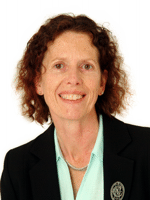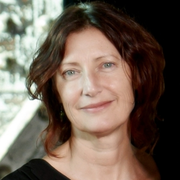Keynote Speakers
|
Professor Linda McDowell
School of Geography and the Environment, University of Oxford. Email: linda.mcdowell@ouce.ox.ac.uk In her research Linda McDowell focuses on economic restructuring and divisions of labour in Great Britain, in-migration, men and women’s changing lives, and feminist theory and methodology. She has made valuable contributions to the feminist scholarship in the social sciences, as well as to geography. McDowell has interviewed bankers in London, young unskilled men searching for employment, European migrant women workers in the immediate post World War II period, South Asian women strikers in the 1970s, nurses from the Caribbean, as well as more recent migrant workers in the UK. Among her recent books are Migrant Women's Voices: talking about life and work in the UK since 1945 (2016), Working Lives: Gender, migration and employment in Britain, 1945-2007 (2009), and Working Bodies: Interactive service employment and workplace identities (2009). McDowell is a partner in several research programs, included the EU Horizon 2020 program on solidarity at different spatial scales challenging the growing inequality and subsequent austerity policies: Solidus - Solidarity in European Societies: Empowerment, social justice and citizenship. Central in her teaching are issues of work and employment, identity, gender and class, and migration, the changing nature of work and employment in the contemporary period. Key words for her presentation at the Tromsø conference: gender, migration and mobilities, employment, feminist perspectives. |
||
|
Professor Marianna Pavlovskaya
Department of Geography, Hunter College, The City University of New York (CUNY) and CUNY Graduate Center. Adjunct Professor, Center for Women's and Gender Research, UiT The Arctic University of Norway. Email: mpavlov@hunter.cuny.edu The break up of the USSR 25 years ago has radically changed the geopolitical outlook of Russia and set off the new migration flows. Much of the post-Soviet mobility is labor-related. In this talk I will examine three types of mobilities associated with the post-Soviet labor migrants: 1) originating in Russia and directed to the West, 2) originating in the post-Soviet republics and directed into Russia, 3) internal labor migrants. These groups differ by ethnicity, levels of education, reasons for becoming labor migrants, and the economic sector in which they seek a job. The two groups also differ in terms of gender composition and the gendered labor markets they try to access. The new employment-related mobilities reconstitute class relations in the post-Soviet Russia and produce new gendered and racialized subjects among the migrant populations and those employing the migrant flows. |
||
|
Professor Robyn Mayes
QUT Business School, Queensland University of Technology, Australia Robyn Mayes is a Vice-Chancellor’s Senior Research Fellow in the QUT Business School, Queensland University of Technology, Brisbane, Australia. Robyn’s current research is concerned with the investigation and theorisation of mobile/migrant labour, global production networks and CSR, local community/ies, gender and work, and embodiments of rural change and senses of place. These concerns are explored through ongoing empirical work on the Australian mining industry. This encompasses, for example, substantial ethnographic work in mining-affected communities, qualitative case studies of the implications of Fly-in, Fly-out (FIFO) work patterns and labour migration on spouses and local communities, along with textual analyses of ‘mining’ discourses. She has published several articles and book chapters addressing these concerns, most recently in Global Networks, Environment and Planning A, Organisation, and Journal of Industrial Relations, and is a co-author of an edited collection Resource Curse or Cure?: On the Sustainability of Development in Western Australia (Springer-Verlag, Berlin, 2014) Key words: mining community/ies, migrant labour, gender, embodiment of rural change. |
||
|
Professor Stuart Aitken
Departement of Geography at San Diego State University, California, USA. Email: saitken@mail.sdsu.edu Stuart Aitken is a professor of Geography and the Director of the Center for Interdisciplinary Studies of Youth and Space at San Diego State University in California. His research interests include feminist and critical theory, qualitative and poststructural methods, children, youth, families and communities, and films. Aitkens work on fathering, affects and space as well as his explorations of creative, non-representational writing making spaces for a mulitplicity of meanings, are of special interest to our conference on Gender and (im)mobilities. His recent books include, among others The Ethnopoetics of Space and Transformation: Young People’s Engagement, Activism and Aesthetics (Ashgate 2014), The Fight to Stay Put (Verlag2013), and The Awkward Spaces of Fathering (Ashgate 2009). Key words for Stuarts presentation in Tromsø: Fathering, Erasure, Mobilities, Citizenship |
||
Vedlegg:
|
|




